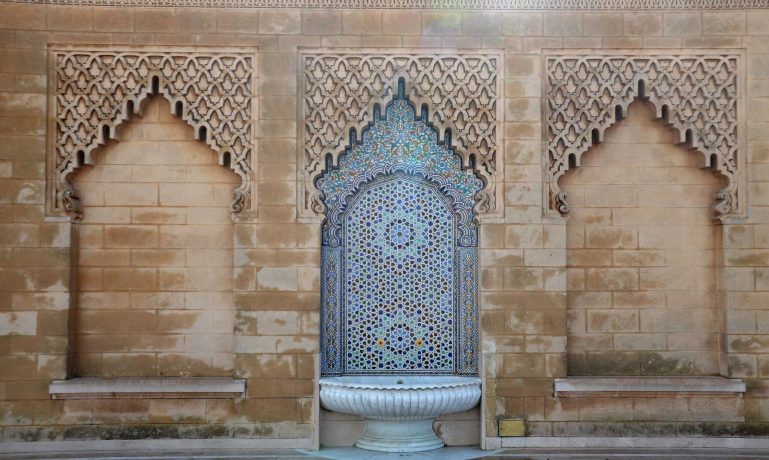
Islamic Finance Instruments: A Beginner’s Guide
Islamic finance has emerged as a significant alternative to conventional financial systems, particularly in the context of ethical and socially responsible investing. This guide aims to provide a comprehensive overview of Islamic finance instruments, their principles, and their applications, catering to beginners who seek to understand this unique financial paradigm.
Core Principles of Islamic Finance
At the core of Islamic finance is the prohibition of riba (interest), which is considered exploitative and unjust. This prohibition is rooted in Islamic teachings emphasizing fairness, equity, and social justice in financial transactions. Islamic finance operates on the principles of profit and loss sharing, risk-sharing, and ethical investment, which distinguishes it from conventional finance which primarily focuses on profit maximization without regard for ethical considerations. The ethical framework of Islamic finance promotes good business practices and aims to foster a more equitable distribution of wealth within society.
Key Islamic Finance Instruments
Murabaha
One of the most prominent instruments in Islamic finance is Murabaha, a cost-plus profit financing structure where the seller discloses the cost of the asset and adds a profit margin. This structure is often used in trade financing and asset purchases. However, there are concerns regarding its potential misuse, as financiers may exploit financially vulnerable firms by imposing excessive profit margins. Despite these concerns, Murabaha remains a widely used instrument due to its simplicity and clarity in pricing.
Mudarabah
Another significant instrument is Mudarabah, a partnership where one party provides capital while the other manages the investment. Profits are shared according to a pre-agreed ratio, while losses are borne solely by the capital provider. This model encourages entrepreneurship and innovation, as it aligns the interests of both parties. Mudarabah is particularly popular in venture capital and investment funds, allowing for collaborative growth and shared success.
Musharakah
Musharakah is another partnership model in Islamic finance, where all partners contribute capital and share profits and losses according to their respective contributions. This instrument is often used in project financing and real estate investments, promoting collective investment and shared risk. The collaborative nature of Musharakah fosters a sense of community and mutual benefit, aligning with Islamic principles of cooperation and support.
Islamic Social Finance Instruments
Islamic finance also encompasses Islamic social finance, which includes instruments that play a crucial role in poverty alleviation and community empowerment. Zakat, a mandatory form of almsgiving, is intended to redistribute wealth and support those in need. Waqf refers to charitable endowments that provide ongoing support for social causes, while Sadaqah represents voluntary charitable contributions. The integration of social finance into the broader Islamic finance framework underscores the commitment to social justice and community welfare.
Global Growth and Adoption of Islamic Finance
The application of Islamic finance instruments is not limited to Muslim-majority countries; it has gained traction in non-Muslim countries as well. The global financial crisis of 2008 highlighted the need for more resilient financial systems, leading to increased interest in Islamic finance as a viable alternative. Policymakers in various regions have begun to explore the potential of Islamic finance to foster economic growth, particularly in small and medium enterprises (SMEs) and microfinance initiatives.
Challenges in Islamic Finance
Despite the growth of Islamic finance, challenges remain in terms of awareness and understanding among potential users. Many individuals and businesses are still unfamiliar with the unique characteristics and benefits of Islamic financial instruments. This gap in knowledge can hinder the adoption of these instruments, particularly in regions where conventional finance dominates. To address this issue, educational initiatives and financial literacy programs focused on Islamic finance are essential to enhance understanding and promote acceptance.
The Role of Technology in Islamic Finance
The role of technology in Islamic finance is also becoming increasingly significant. Fintech innovations have the potential to enhance the accessibility and efficiency of Islamic financial products, making them more attractive to a broader audience. For instance, digital platforms can facilitate the distribution of Sukuk and streamline the process of Zakat collection and distribution. The integration of technology into Islamic finance can help bridge the gap between traditional practices and modern financial needs, fostering greater inclusivity and participation.
Conclusion
Islamic finance instruments offer a unique and ethical alternative to conventional financial systems, emphasizing fairness, risk-sharing, and social responsibility. The diverse range of instruments, including Murabaha, Mudarabah, Musharakah, and Sukuk, provides various avenues for investment and financing that align with Islamic principles. As the global interest in ethical finance continues to grow, the potential for Islamic finance to contribute to sustainable economic development and social welfare becomes increasingly apparent. By enhancing awareness, promoting financial literacy, and leveraging technology, the Islamic finance sector can expand its reach and impact, ultimately fostering a more equitable and just financial landscape.
Looking for Islamic financing solutions? Asaan Ghar offers Shariah-compliant financing to facilitate your homeownership journey. Contact us today to explore how we can help make your dream home a reality.









Leave A Comment